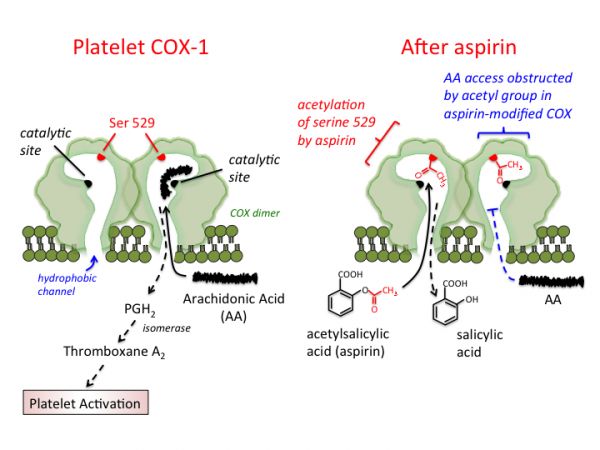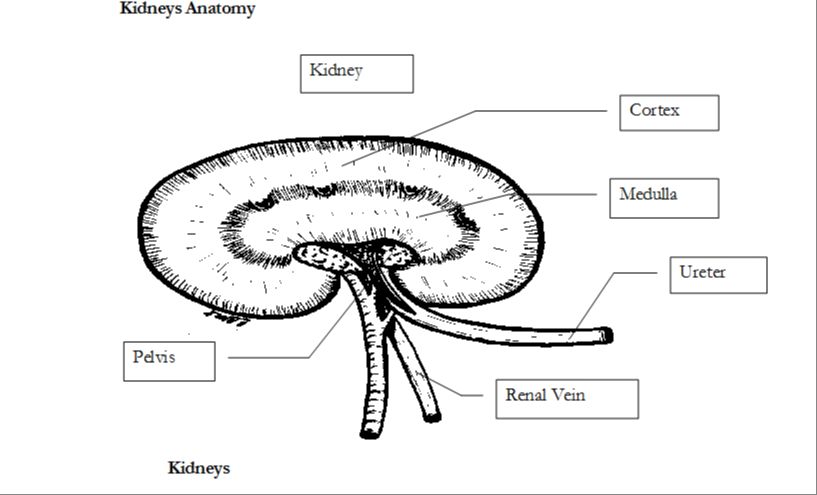Introduction
Aspirin is a common over-the-counter medication used to relieve pain and reduce fever in people. It works by blocking prostaglandins, hormone-like substances that cause inflammation and pain. While aspirin can be safe for people in low doses, it can be toxic to dogs, especially when given in high doses or over a long period of time.
Dog kidneys play a vital role in filtering waste and toxins from the blood. They can be sensitive to medications like aspirin that alter blood flow or have direct toxic effects on the kidneys themselves. Even small amounts of aspirin can start to impact kidney function in dogs.
There is a potential connection between aspirin use in dogs and kidney damage. Aspirin toxicity can cause acute kidney injury or, with repeated exposure, gradual kidney failure over time. Understanding this risk is important for any dog owner considering giving aspirin for pain relief.
How Aspirin Works
Aspirin, also known as acetylsalicylic acid, works in the body by inhibiting the production of prostaglandins. Prostaglandins are hormone-like chemicals produced in the body that are involved in inflammation, pain, and fever (1).

Aspirin irreversibly inactivates the enzyme cyclooxygenase (COX), which is needed for prostaglandin synthesis. By inhibiting COX, aspirin blocks prostaglandin production and reduces inflammation, pain, fever and blood clotting (2).
There are two types of COX enzymes – COX-1 and COX-2. Aspirin non-selectively inhibits both COX-1 and COX-2. Inhibition of COX-1 is what makes aspirin an effective anti-platelet agent that thins the blood. Inhibition of COX-2 is responsible for aspirin’s anti-inflammatory effects (3).
Overall, the ability of aspirin to inhibit prostaglandin production via COX enzymes is the mechanism that underlies its pharmacological effects as an analgesic, antipyretic, anti-inflammatory and anti-platelet medication.
Kidney Function in Dogs
The kidneys play a vital role in a dog’s health. They are bean-shaped organs located in the abdomen that act as filters for the blood. The main functions of the kidneys include:
- Removing waste products from the blood – As blood flows through the kidneys, they filter out toxins, excess minerals, and metabolic waste products and turn them into urine to be excreted from the body.
- Regulating fluid and electrolyte balance – The kidneys control the amount of water, salts, and acids that stay in the body or get excreted as urine. This helps maintain proper blood pressure and pH.
- Producing hormones – The kidneys release hormones like erythropoietin and renin that help regulate red blood cell production and blood pressure.
The nephrons are the microscopic structural units inside the kidneys that filter the blood. Each kidney contains over a million nephrons. As blood enters the nephron, it goes through different sections that filter out waste and reabsorb water and nutrients back into the bloodstream. The filtered waste left behind becomes urine.
Healthy kidneys are essential for removing toxic metabolic byproducts like urea and creatinine from the blood. Kidney disease or failure allows these waste products to build up to dangerous levels in the body. That’s why regular kidney function monitoring through blood and urine tests is important for dogs.
Sources:
https://vcahospitals.com/know-your-pet/kidney-failure-chronic-in-dogs
Aspirin and Kidney Function
Research shows that aspirin can have detrimental effects on kidney function through multiple mechanisms. Aspirin inhibits cyclooxygenase enzymes, reducing production of prostaglandins that help maintain normal kidney blood flow and function (https://pubmed.ncbi.nlm.nih.gov/8669425/). This reduced blood flow, known as renal ischemia, can cause acute kidney injury.

Additionally, chronic high-dose aspirin use leads to direct tubular toxicity, impairing the kidney’s ability to concentrate urine (https://www.ajkd.org/article/S0272-6386(96)90565-X/pdf). Aspirin and its metabolites can also form crystals that obstruct urinary flow.
Even at lower doses, one study found aspirin doubled the risk of a >30% decline in glomerular filtration rate (GFR) in patients with pre-existing chronic kidney disease (https://www.ncbi.nlm.nih.gov/pmc/articles/PMC8625790/). Thus, aspirin can impair kidney function through both blood flow-dependent and direct toxic mechanisms.
Risk Factors for Kidney Damage in Dogs
There are several conditions and factors that can increase a dog’s risk of developing kidney problems or kidney disease (CKD Risk Factors, 2019):
Breed – Certain breeds like Cocker Spaniels, Miniature Schnauzers, Shih Tzus, Lhasa Apsos, and Standard Poodles are more prone to kidney disease.
Age – Older dogs are at higher risk, with most dogs developing kidney disease at 7-10 years of age.
Gender – Male dogs are at increased risk compared to females.
Concurrent illness – Conditions like high blood pressure, heart disease, liver disease, urinary tract infections, and endocrine disorders can contribute to kidney damage.
Diet – Poor quality or inaccurate diets can increase risk, while some diets help support kidney health.
Medications – Drugs like NSAIDs, chemotherapy drugs, aminoglycoside antibiotics, and Chinese herbals can harm the kidneys (Acute on chronic kidney disease in dogs, 2020).
Prior kidney injury – Past acute kidney injury increases the risk for chronic kidney disease later on.
In general, older small breed dogs with concurrent illness taking certain medications are most at risk for developing chronic kidney disease.
Giving Aspirin to Dogs
Aspirin is sometimes given to dogs by veterinarians for treating pain, fever, and arthritis. The anti-inflammatory and pain relieving effects of aspirin can provide relief for dogs suffering from these conditions when given at the proper dosage (https://www.akc.org/expert-advice/health/aspirin-for-dogs/).
The typical dosage of aspirin for dogs is 5-10 mg per pound every 12 hours, or 4-10 mg per kg every 12-24 hours. Aspirin should always be given with food to prevent stomach upset. It’s important to follow your veterinarian’s specific dosage recommendations as giving too much aspirin can be toxic for dogs (https://www.webmd.com/pets/dogs/can-i-give-my-dog-aspirin).
While short-term use may provide benefits, aspirin does carry risks for dogs. Stomach and intestinal irritation or bleeding can occur even at recommended dosages. Aspirin should not be given to dehydrated animals or those with pre-existing kidney disease, liver disease, or bleeding disorders. Long-term use in dogs may potentially lead to liver or kidney damage. For these reasons, aspirin dosage and duration should always be carefully monitored by a veterinarian when given to treat dogs.
Aspirin Toxicity in Dogs
Aspirin toxicity occurs in dogs when they ingest high doses of aspirin, either through a single large overdose or cumulative smaller doses over time. Aspirin is extremely toxic to dogs, even in amounts considered safe for human consumption. Signs of aspirin toxicity in dogs typically develop within 4-6 hours of ingestion.[1]

Some of the most common symptoms of aspirin toxicity in dogs include:
- Vomiting – Can begin soon after ingestion. May be repeated and contain blood or coffee ground-like material.
- Diarrhea – Can be bloody or contain dark tarry material.
- Loss of appetite
- Lethargy and depression
- Dehydration
- Abdominal pain
- Bruising or bleeding – From the gums, nose, urine or feces.
These signs are caused by the effects of aspirin overdose on the dog’s body. High doses of aspirin can damage the stomach, intestines and liver by causing ulcers and interfering with blood clotting. The toxicity can also lead to fluid buildup in the lungs and acidification of the blood.[2]
Any evidence of aspirin toxicity in dogs should be treated as an emergency. Immediate veterinary care is required to address the poisoning and prevent serious complications or death.
Kidney Damage from Aspirin in Dogs
Research shows that aspirin can cause kidney damage in dogs, especially at high doses or with chronic exposure. According to a study published on PubMed, acute aspirin intoxication over 300 mg/kg frequently causes acute kidney injury in dogs, while 500 mg/kg may be lethal (https://pubmed.ncbi.nlm.nih.gov/8669425/). VCA Hospitals reports case studies where dogs developed kidney damage after ingesting high doses of aspirin or being chronically exposed (https://vcahospitals.com/know-your-pet/aspirin-poisoning-in-dogs).

The dose and duration of aspirin exposure impacts the risk and severity of kidney damage. Higher doses or chronic low-level exposure increases the risk. Dogs may require monitoring for kidney issues even after acute aspirin toxicity. Early detection and treatment is important to try to minimize permanent kidney damage.
Safer Alternatives to Aspirin
While aspirin can potentially cause kidney damage in dogs, there are some safer alternatives for managing pain and fever that are gentler on a dog’s kidneys:
NSAIDs specifically approved for dogs – There are some NSAID pain relievers made just for dogs that veterinarians may prescribe, such as firocoxib (Previcox), deracoxib (Deramaxx), or meloxicam (Metacam). These are safer options as they are formulated at appropriate dog dosages.
Acetaminophen – In proper dosages, acetaminophen can be used for pain relief in dogs, but it does not reduce inflammation. Check with your vet on proper dosage based on your dog’s weight.1
Nutriceuticals – Some nutriceutical supplements like chondroitin, glucosamine, and omega-3 fatty acids have anti-inflammatory properties and can support joint health in dogs.
Cold/heat therapy – Applying cold and/or heat packs to affected and painful areas can help relieve discomfort in dogs. This has no kidney effects.
Massage – Gentle massage and range of motion exercises can aid muscle and joint pain and promote circulation.
Acupuncture – Acupuncture performed by a certified veterinary professional may stimulate natural pain relief in dogs.
These alternatives are typically gentler on a dog’s kidneys than aspirin. Always consult your veterinarian before giving your dog any new medications or supplements. With safer options available, aspirin should be avoided in dogs, especially those with kidney issues.
Conclusion
In conclusion, aspirin does have the potential to cause kidney damage in dogs when given improperly or in high doses. Aspirin works by inhibiting prostaglandins, which help regulate blood flow to the kidneys. Too much aspirin can reduce blood flow, leading to kidney dysfunction or even failure in severe cases. Dogs already at risk, such as those with pre-existing kidney disease, are most vulnerable. While occasional low doses of aspirin may be safe in some cases, it’s best to avoid giving dogs aspirin unless specifically recommended by a veterinarian. There are safer alternatives available for pain relief in dogs, such as non-steroidal anti-inflammatory drugs made specifically for canine use. If aspirin must be given, follow veterinary guidelines closely and monitor for any signs of adverse effects. Overall, responsible pet owners should be aware of the risks aspirin poses and use caution if considering giving this medication to their dogs.